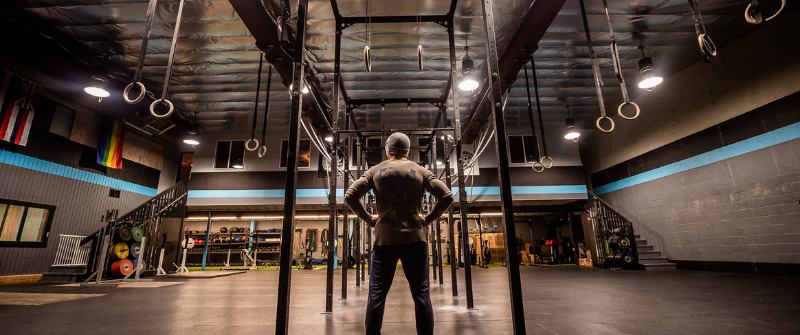A gym lease is a legal agreement between a gym owner and a landlord that outlines the terms and conditions of renting a commercial space for a gym. The lease typically includes details like the rent amount, lease term, security deposit, and maintenance responsibilities. It is an essential document that protects the rights and interests of both parties involved. We advise that a local attorney review any legal contract and answer your questions before you sign on the bottom line.
A gym lease is a critical component of a gym owner’s business plan, as it establishes the foundation for the gym’s operations. Finding the right commercial space for a gym can be a challenging task, and it is important to negotiate and review the lease carefully to ensure that it meets the needs of the gym owner and is fair and reasonable.
There are several factors that gym owners should consider when negotiating a gym lease, such as the location, accessibility, and visibility of the commercial space, as well as the lease terms and conditions. A well-drafted gym lease can help gym owners avoid disputes and legal issues down the line, providing them with greater peace of mind and stability so they can focus on making their gyms successful.
The Pros and Cons of Short-Term Leases
Making the decision to sign a short-term lease for a gym can be difficult for some gym owners. While short-term leases offer better flexibility and the ability to adjust to changing market conditions, they also come with potential drawbacks. Here are some key considerations to keep in mind when deciding whether to sign a short-term gym lease.
The Pros
Flexibility: Short-term leases typically offer greater flexibility than long-term leases, allowing gym owners to adjust their business strategy to changing market conditions and customer demand.
Lower financial commitment: Short-term leases often require lower financial commitments, such as smaller security deposits and lower rent payments, which can be attractive to gym owners who are just starting out or have limited capital.
Easier to terminate: Short-term leases typically have shorter termination periods than long-term leases, which can be beneficial if the gym owner needs to relocate or close the gym for any reason.
The Cons
Uncertainty: Short-term leases can create uncertainty for gym owners, as they may need to relocate their gym at the end of the lease term, which can be disruptive to their businesses.
Limited negotiation power: With short-term leases, gym owners may have limited negotiation power on various lease terms and conditions, which can be disadvantageous if their landlord is unwilling to make concessions.
Before signing a short-term lease for a gym, owners should carefully consider the pros and cons. Although short-term leases offer flexibility and lower financial commitments, they also come with potential drawbacks, such as uncertainty. Gym owners should weigh these factors carefully and seek professional advice to make an informed decision that aligns with their business goals and objectives.
3 Major Reasons to Consider Signing a Short-Term Gym Lease
Short-term leases offer several advantages for CrossFit Affiliates, which are unique fitness facilities that require specialized training programs and methodology. Here are some of the key advantages of short-term leases for CrossFit gyms:
1. Flexibility
Short-term leases offer greater flexibility than long-term leases, allowing CrossFit gyms to expand into a larger location as they build up their clientele and business.
2. Greater Negotiation Power
Short-term leases can provide CrossFit gym owners with greater negotiation power when it comes to lease terms and conditions. This can be advantageous if the landlord is willing to make concessions, such as lower rent payments or increased flexibility with regard to maintenance responsibilities.
3. Lower Financial Commitment
Short-term leases often require lower financial commitments than long-term leases, which can be attractive to CrossFit gym owners who are just starting out or have limited capital. This makes it easier for CrossFit gyms to invest more in high-quality equipment, staff certification, and training programs so they can attract and retain members
Additional Perks of Signing a Short-Term Lease
Access to prime locations – Short-term leases can provide CrossFit gyms with access to prime locations that may be otherwise unavailable due to high demand or longer lease terms. This can be especially important for CrossFit Affiliates that rely on foot traffic and visibility to attract new members.
Easier to terminate – Short-term leases typically have shorter termination periods than long-term leases, which can be beneficial if the CrossFit gym owner needs to relocate or close the gym for any reason. CrossFit gym owners can focus on running their businesses without worrying about the hassles associated with long-term lease commitments.
Limited maintenance responsibilities – With short-term leases, the landlord typically retains most of the maintenance responsibilities, such as repairs and upgrades to the building and facilities. This can be a significant advantage for CrossFit gyms, as maintenance can be expensive and time-consuming.
Ability to test new markets – Short-term leases can be a great way for CrossFit gyms to test new markets and customer segments without committing to long-term lease agreements. This can be especially important for CrossFit gyms that are expanding and want to explore new markets before making any long-term commitments.
In conclusion, short-term leases offer several distinct advantages for CrossFit gyms, including greater flexibility, lower financial commitments, access to prime locations, easier termination, limited maintenance responsibilities, greater negotiation power, and the ability to test new markets.
However, it is important for CrossFit gym owners to carefully consider the potential drawbacks of short-term leases, and to seek professional advice before signing any agreements.
By weighing the pros and cons of short-term leases and making an informed decision that aligns with their business goals and objectives, CrossFit gym affiliates can set their businesses up for success and achieve long-term growth and profitability.


